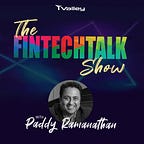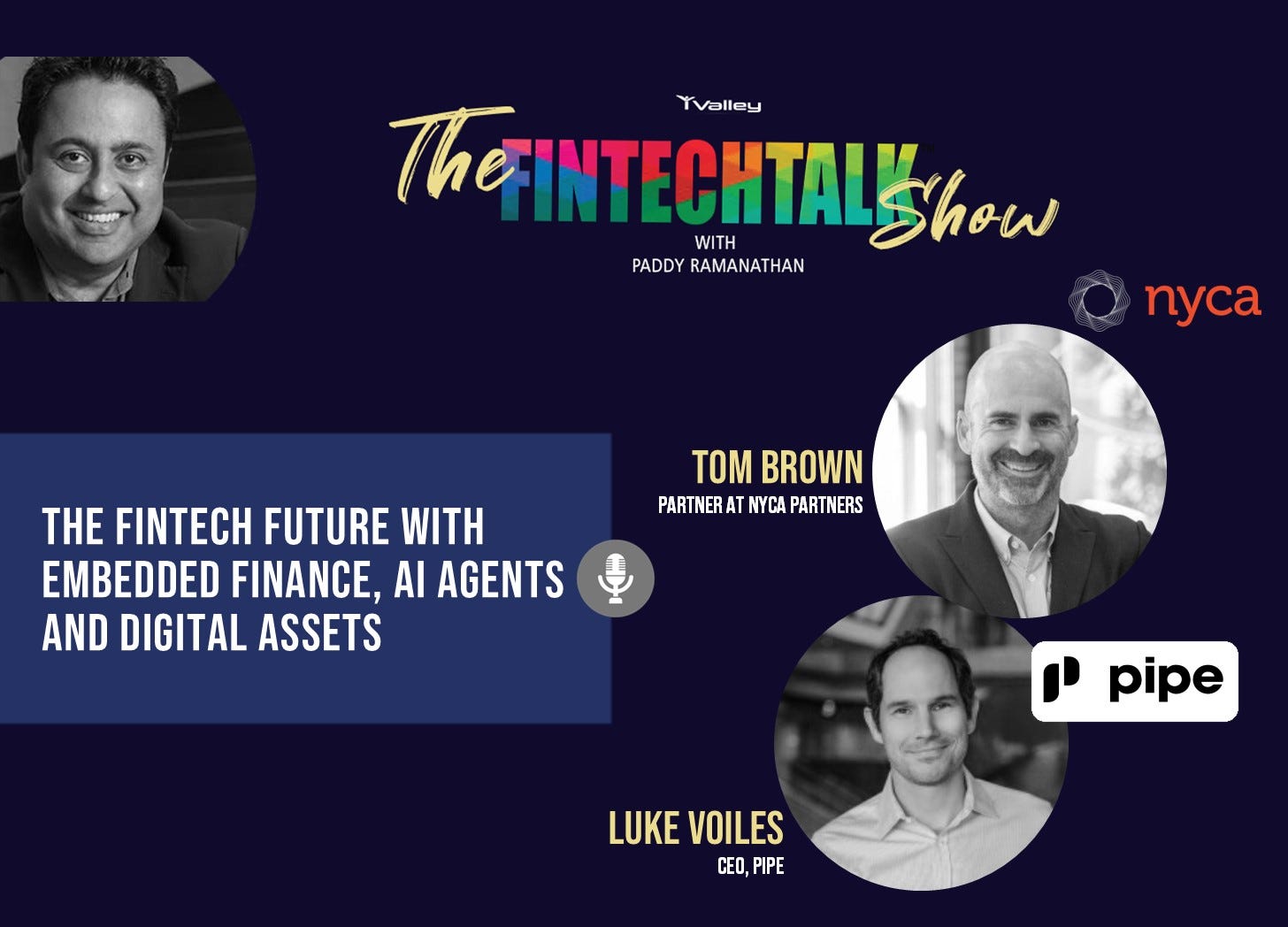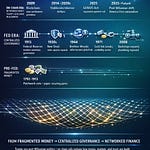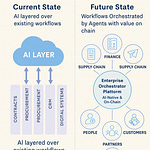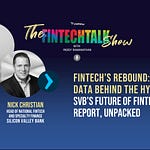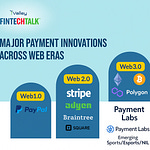HI FINTECHTALKERS, (opinion below are my own not necessarily of my guests)
I sat down with Tom Brown, partner and general counsel at NYCA Partners, and Luke Voiles, a trailblazer in small business fintech and now CEO of Pipe. We explored the evolving landscape of fintech, diving into the shift from traditional financial services to embedded finance, to support vertical SaaS solutions, and the integration of AI agents into business ecosystems.
Fintech began its journey of digitizing financial services in the late '90s, marked by the emergence of pioneers like PayPal. This digital transformation laid the groundwork for the explosion of the fintech industry, where nearly every business aspired to be part of the fintech wave—a trend famously captured by Angela Strange’s aphorism, "Every company will be a fintech company."
This evolution continued into what can be called the era of collaboration and ecosystems. Banking as a Service (BaaS) and aggregators like Plaid enabled seamless integration, paving the way for a thriving ecosystem of fintech solutions. During this time, mobile wallets, challenger banks, and specialized fintech applications rose to prominence, meeting the growing consumer demand for more personalized, accessible, and technology-driven financial services.
We are at the dawn of a new era in fintech—one that is hyper-specialized in vertical workflows and will be powered by AI agents. Financial services are becoming increasingly embedded into everyday experiences for consumers and small businesses. Financial services infrastructure is becoming modernized with digital assets enabling near real time clearance/settlement and payments.
Much like the seamless payment experience of an Uber ride, embedded finance aims to make financial processes invisible to users. At the same time, financial product innovation is evolving. Visa Flex, for instance, functions as both a credit product and an interest-bearing deposit. Buy Now, Pay Later (BNPL) merges payments with lending, while digital assets remove the need for traditional settlement and clearance, building new payment infrastructures, as Tom explains.
AI agents, like the Small Business CFO from Pipe, are poised to transform business financial decision-making. As Luke describes, these AI-driven tools will give small businesses greater autonomy, enabling smarter decisions with minimal human input. This shift will reduce complexity, streamline cash flow, and deliver personalized financial insights—all without needing a dedicated finance team.
This era also marks a significant shift in the types of founders driving fintech's growth. The next generation of fintech leaders won’t fit the traditional mold; they will be diverse individuals building solutions for their own communities. This is evident in programs like Bank of America’s Breakthrough Lab, an accelerator supporting underrepresented founders. Here, minority founders are developing specialized applications that tap into opportunities in underserved communities, particularly among Latino and African American populations. The focus on segment-specific innovation reflects a broader trend toward financial inclusivity, and these founders are leading the way in addressing the unique needs of their communities.
Timestamps to make it easy to navigate the podcast.
0-1.40 - Introduction Tom and then Luke
1.41-5.42 - Additional background of Luke in distressed credit and Tom in antitrust litigation and how that has shaped their operating and investing minds
5.43- 28.31 Round 1 - Fintech History and future. So far it has primarily been innovation in distribution of financial services, are we at a cusp of product innovation with embedded finance, digital assets, AI and AI agents.
7.08-13.36 - Luke on verticalization, fintech for main street, AI agents, and how AI could change SaaS model in software delivery. His high schoolers project in Claude.
13.37-20.34 - Tom on his perspective on innovation in fintech - big tech and fintech, real time clearing and settlements, electronic money tokens and how some innovation come from law side than technology.
20.35-28.30 Limitations of ACH and innovations in real time payments, digital assets as new pipe for payments and innovators dilemma of changing banks and regulators outlook towards faster payments.
28.31-34.25 Round 2 - What are Luke and team building at Pipe? Working capital for small business + spend and expense management and verticalized fintech. Capital as a service
34.26- 45.08 Verticalization and embedded finance and variabilty of performance by vertical
45.09-57.0 Round 3 - Will AI disrupt knowledge worker economy? The AI CFO for small business as an example that Pipe is building. Regulated industry and AI automation - the challenges.
57.01 -61.55 - NYCA’s investment thesis - connecting technology to financial services and moving onto digital assets and deep tech like quantum tech.
61.56- 70.58 - Round 4 - US Presidential elections - policy differences between the two candidates as it applies to fintech and small business.
70.59- 76.54 - Closing - Where can people find you, next big things, who are you looking to connect?
If you’re keen to understand the intersection of AI, fintech, and the future, you don’t want to miss this one!
Enjoy and always be in the Know,
Paddy Ramanathan
Follow me on the new Twitter (X) @PaddyRamanathan
Founder of iValley (www.ivalley.co) and
Host of the FINTECHTALK™ Show (on Substack, Apple Podcast, YouTube, and Spotify)
Thanks to chatgpt for suggestions.
(Violin piece in podcast, courtesy of my daughter Ilina)


